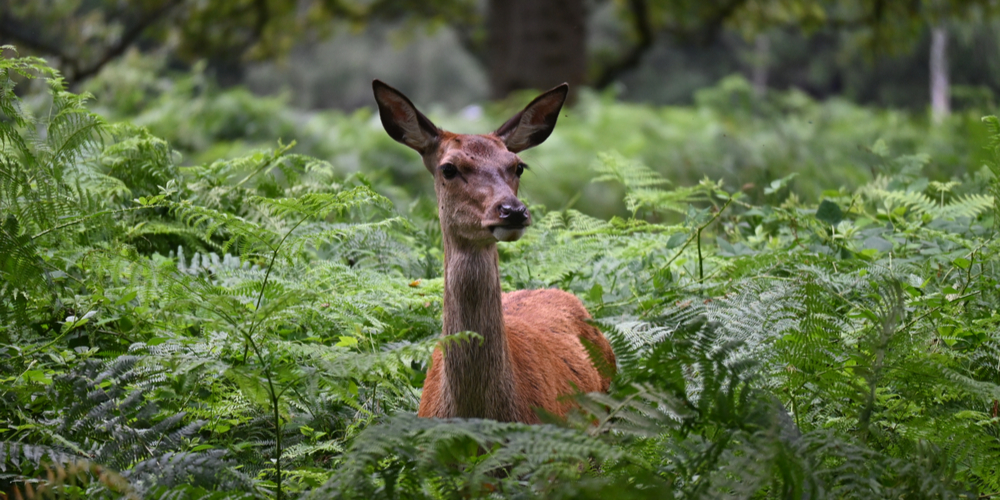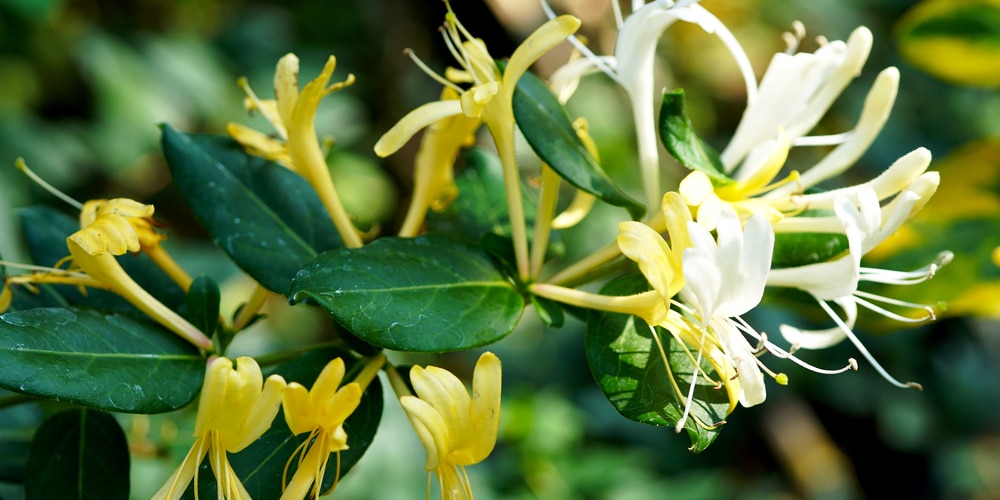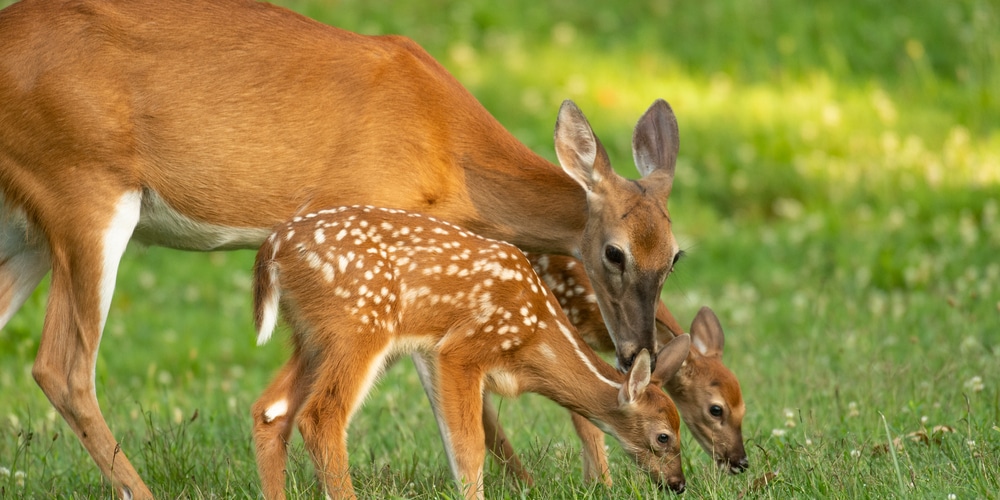When most people think of deer, they picture the animals grazing in a meadow or bounding through a forest. However, deer are also known to eat plants that many people would consider weeds, such as honeysuckle.
So, the question arises: do deer eat honeysuckles? The answer is yes. Deer will consume honeysuckle plants if they are available. Deer are known for their voracious appetites and will eat just about anything they can get their hooves on. This includes honeysuckle, although some varieties are more deer-resistant.
Deer Resistant Honeysuckle Varieties
Three main types of honeysuckle are resistant to deer: privet honeysuckle, North American coral honeysuckle, and boxleaf honeysuckle.
Privet Honeysuckle (Lonicera pileata)
Privet honeysuckle is a hardy shrub that grows in USDA plant hardiness zones 4 through 8. It has dark green leaves and produces fragrant white flowers in the spring. Privet honeysuckle is resistant to deer.
North American Coral Honeysuckle (Lonicera sempervirens)
North American coral honeysuckle is a perennial vine that grows in USDA plant hardiness zones 6 through 10. It has glossy green leaves and produces clusters of trumpet-shaped red flowers in the summer. North American coral honeysuckle is resistant to deer.
Boxleaf Honeysuckle (Lonicera nitida)
Boxleaf honeysuckle is an evergreen shrub that grows in USDA plant hardiness zones 7 through 9. It has small, dark green leaves and produces fragrant white flowers in the spring. Boxleaf honeysuckle is resistant to deer.
Keep in Mind to Avoid Japanese Honeysuckle
The most deer-resistant variety of honeysuckle is Japanese honeysuckle, but it is also the most invasive. Japanese honeysuckle can take over a garden quickly, and because it is so aggressive, it can outcompete other plants for resources.
Honeysuckles are Not Entirely Deer Proof
Even though some varieties of honeysuckle are more resistant to deer than others, all types of honeysuckle are not entirely deer-proof. Deer will browse on the leaves and flowers of honeysuckle if available, so it is essential to plant these shrubs in areas where deer will not have easy access.
Honeysuckle Substitutes
If you are looking for a deer-resistant shrub that produces fragrant flowers, there are several substitutes you can plant in your garden.
Crossvine (Bignonia capreolata)
Crossvine (Bignonia capreolata) is a hardy vine that grows in USDA plant hardiness zones 6 through 9. It has glossy green leaves and produces clusters of trumpet-shaped orange flowers in the summer.
Carolina yellow jasmine (Gelsemium sempervirens)
Carolina yellow jasmine (Gelsemium sempervirens) is a perennial vine that grows in USDA plant hardiness zones 7 through 10. It has glossy green leaves and produces clusters of trumpet-shaped yellow flowers in the winter. Both of these plants are resistant to deer.
Do Deer Eat Honeysuckle?: Conclusion
Deer are voracious eaters and will consume just about anything they can get their mouth around, cantaloupe, watermelon, pumpkins, and even ferns. While honeysuckle is not the deer’s favorite food, it is on their menu, and they will readily devour it if given the opportunity.
There are a few substitutes for honeysuckle that you can use in your landscape to keep the deer from eating them. We recommend crossvine or Carolina yellow jasmine as suitable substitutes for honeysuckle.
With its fragrant flowers and glossy leaves, honeysuckle is a beautiful addition to any garden. By planting resistant varieties of honeysuckle and keeping them out of reach of deer, you can enjoy their beauty without worrying about the damage that deer can do. If you aren’t sure what’s eating it, here’s a list of just about everything that could be eating your honeysuckle.
Related Article: Can Goats Eat Honeysuckle?


